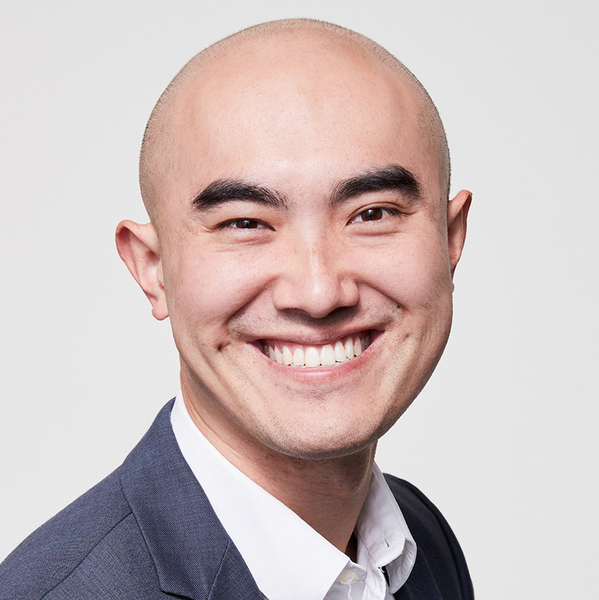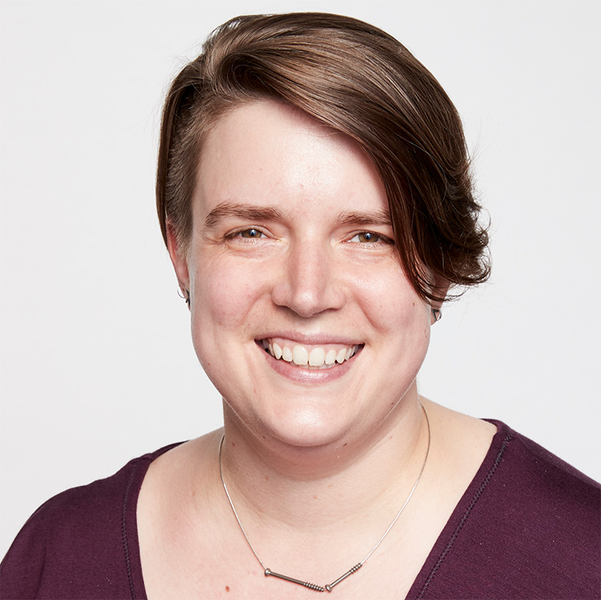AMIA 2024 Clinical Informatics Conference Keynote Presentations
Opening Keynote
Wednesday, May 22 | 8:00 am - 9:15 am
Attention is in Short Supply - Staying Afloat in a Sea of AI
Despite the tech hype cycle and the innate pessimism towards change in healthcare, big dollars are being spent on AI to radically rethink how care is delivered and administered. It’s all a bit overwhelming in an industry where we are already all dealing with constantly changing workflows and burnout.
This keynote will explore how other industries have leveraged AI to reinvent their products, services and organizations. The presenters will delve into specific examples where innovative AI applications have resulted in both radical and subtle changes to the status quo.
Using these examples as inspiration, the presenters hope to equip the audience with new mindsets of approaches for your personal making practices. After all, the most direct way to inhabit the future we want is to be the ones who build it.
Yicheng “YC” Sun is a director in IDEO’s health portfolio, specializing in building digital products and emerging technologies. He applies human-centered design in service of individual and collective wellbeing and is constantly thinking about how to bring healthcare ventures from ideation to market. Some of YC’s market-facing impacts include designing the future of clinical trials experience for underserved populations, improving neurological disease treatment and prevention, and making personal wellbeing engaging through digital interventions in sleep, mental health, and movement. YC is an adjunct professor at Stanford Design School. He teaches "Design for Healthy Behaviors,” a graduate-level course where students apply design thinking alongside patients with chronic conditions to improve their long term health. YC holds an electrical engineering degree from Princeton, where he developed his creativity through tinkering and breathing in healthy doses of solder. In his free time, he loves running absurdly long distances.
Jenna Fizel co-leads IDEO’s Emerging Technology practice. They are inspired by the unexpected ideas that arise when translating the abstract world of information into the tangible world we can see, touch and taste. At IDEO Jenna helps teams explore design questions through building with tools like AI, XR, and digital fabrication. They believe these tools can sometimes be part of the design solution—but are always useful during the design process when used as new ways of seeing. In addition to leading IDEO’s emerging technology practice, they run an 80+ person internal learning group that makes technical skills more accessible to the IDEO community, regardless of discipline or position.
They began their career in the computational geometry department of KPF, where they used their academic background at MIT to apply systems thinking to a wide range of practical problems, from value engineering construction processes to complying with building code via dynamic simulation. Somewhat surprisingly, this led them to writing their first gradient descent algorithm and falling in love with how different ways of understanding data can transform our relationship with the institutions we interact with every day. They took this love to an interactive design agency where they worked for museums, libraries and corporations designing and building mixed physical/digital spatial experiences that helped their clients express complex data to a variety of audiences. They also co-founded a fashion technology startup and served as the CTO of a technology-focused intimate apparel company.
Closing Keynote
Thursday, May 23 | 2:15 pm - 3:15 pm
Clinical Decision Support - The Present and the Future
Clinical decision support has been a part of clinical technology from the beginning. Now there are interoperability standards, regulatory requirements, and computing advances that open new frontiers for clinical decision support. Working in a health system, the government and now at Optum, Kevin Larsen will describe the current state of CDS from these three vantage points. Larsen will highlight work he is doing for scaling CDS using FHIR and HL7 standards. Larsen will also look to the future of machine learning, artificial intelligence and large language models and their use in clinical decision support.
Dr. Kevin Larsen is Senior Vice President, Clinical Innovation at Optum. Kevin’s role is to provide clinical leadership and a clinical voice to Optum Center for Advanced Clinical Solutions. He leads the clinical and informatics team in building and deploying provider enablement technologies, including clinical decision support integrated through electronic health records. Previously he was the Chief Medical Officer of OptumLabs where he supported the design and implementation of innovative research, analytics and evidence-based translation programs in diverse areas across our portfolio. Additionally, he was the primary clinical lead of the Optum Enterprise strategy, an initiative to modernize and integrate Optum products and services.
Kevin is an internist and medical informaticist who started his career at Hennepin County Medical Center in Minneapolis where he had a variety of executive and clinical leadership roles. He has worked in academic, hospital and government settings, focusing on innovation through data and analytics, research, policy and developing/implementing novel programs at scale.
He joined Optum from the US Department of Health and Human Services (HHS), where most recently he has been Senior Health IT Advisor at the office of the Chief Technology Officer. There he was the executive lead for the 10-billion-dollar Indian Health Service Electronic Health Record Modernization Project. Kevin established and led the Centers for Medicare and Medicaid Services (CMS) strategic planning and transformation team under Dr. Patrick Conway and Andy Slavitt. In that role was on the CMS executive team where he convened stakeholders across CMS and its partners to develop strategies and execute enterprise program improvements. He consulted on health IT policy, standards and project execution for numerous Centers for Medicare and Medicaid Innovation (CMMI) models, such as Million Hearts, Oncology Bundle, State Innovation Models and Accountable Health Communities. He started his Washington D.C. career at Office of the National Coordinator for Health Information Technology (ONC) as the Medical Director of Meaningful Use where he led ONCs work on quality policy, measurement and improvement, including clinical decision support and social determinants of health.
Earlier, Kevin was CMIO and Associate Medical Director of Hennepin Health System. He is an associate professor of medicine at the University of Minnesota. He was the founder and leader of the Center for Urban Health, a health equity focused health services research institute. Here his research included health care financing for people living in poverty, social determinants of health, health equity and the digital divide.
Kevin has extensive policy and advocacy experience in health IT, value-based payment, quality measurement, quality measure programs, Medicaid, CMS innovation models and HHS operation.



